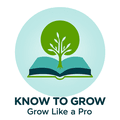The rapid advancement of technology is transforming education, making it more flexible, engaging, and accessible. Innovations like e-learning and gamification are revolutionizing how we learn, offering personalized and interactive experiences for learners of all ages. In this post, we’ll explore the key technologies driving this change.
E-Learning: Learn Anytime, Anywhere
E-learning has revolutionized education by enabling students to access learning materials and courses from anywhere in the world. Online platforms like “Coursera”, “Khan Academy”, and “edX” provide free or affordable courses from renowned universities, ensuring that education is no longer confined to physical classrooms. In Pakistan, platforms like “Digiskills.pk” and “Sabaq.pk” also offer valuable learning opportunities tailored to local needs.
With e-learning, students can learn at their own pace, whether through watching videos, completing quizzes, or participating in virtual discussions. This flexibility makes it easier for learners to integrate studies into their daily lives and tailor their learning experiences to their personal preferences.
Gamification: Making Learning Fun and Engaging
Gamification is the process of adding game-like elements—such as points, rewards, and challenges—into educational experiences. Platforms like Kahoot!, Classcraft, and Duolingo transform learning into an engaging and interactive experience that encourages students to stay motivated and involved.
This method not only makes learning more enjoyable but also cultivates essential skills such as problem-solving, critical thinking, teamwork, and perseverance. These qualities are invaluable, not just in academics, but also in everyday life.
Cutting-Edge Technologies Shaping the Future of Education
In addition to e-learning and gamification, several advanced technologies are further transforming education. These include:
Artificial Intelligence (AI)
AI is helping to personalize education by adapting content and lessons based on a student’s performance. It can recommend tailored resources, provide real-time feedback, and even offer tutoring when needed, helping students learn more effectively.
Virtual and Augmented Reality (VR/AR)
VR and AR are creating immersive educational experiences that allow students to explore topics in once-impossible ways. VR can take students on virtual journeys through history, space, or even the human body, while AR integrates interactive 3D models into the real world to enhance understanding and engagement.
Blockchain
Blockchain technology is revolutionizing the way academic records are stored and verified. It ensures the security and integrity of student data, including grades and certifications, making it easier for students to manage and share their educational achievements.
Adaptive Learning
Adaptive learning systems analyze a student’s progress and adjust lessons to their individual needs. These platforms offer extra help for those who need it and more challenging content for high achievers, making learning more efficient and accessible for all.
E-Learning Platforms in Pakistan
In Pakistan, several innovative e-learning platforms are helping to bridge the education gap by providing flexible and affordable learning options. Notable platforms include:
- Digiskills.pk: A government-backed initiative offering free courses in fields such as digital marketing, freelancing, and graphic design, empowering individuals with the skills needed for today’s job market.
- Sabaq.pk: Offering free video lessons for school students from grades 1 to 12, covering essential subjects like mathematics, physics, chemistry, and biology.
- Taleemabad: Focused on primary education, this platform offers interactive lessons in subjects like mathematics, science, and languages, aiming to make learning fun for young learners.
- Maktab.pk: A platform that focuses on Islamic education, offering Quranic studies and other religious lessons in a more accessible and engaging format.
- LearnOn: Providing a mix of academic and professional courses, LearnOn helps students enhance their skills in areas such as technology, business, and creative industries.
- Global Platforms: Platforms like Coursera and Khan Academy are widely used in Pakistan, offering courses across a wide range of academic and professional fields.
These platforms are making education more accessible across Pakistan, helping students gain skills, expand their knowledge, and advance their careers.
The Future of Education: Blended Learning
Blended learning combines the best of both worlds—online education and traditional classroom teaching. Students attend in-person classes while also benefiting from online resources and flexible learning options. This hybrid model provides a balance between teacher-led instruction and independent study, ensuring that students receive both structure and flexibility in their learning experience.
As technology continues to evolve, the future of education promises to be even more interactive, personalized, and accessible. Students will have more control over how and when they learn, leading to an enriched and more effective educational experience.
Conclusion
The integration of technology into education is transforming how we learn, making education more flexible, engaging, and accessible. Innovations like e-learning, gamification, AI, VR, and blockchain are paving the way for a future where education is tailored to the individual. Platforms like Digiskills.pk, Taleemabad, and Coursera are playing a key role in making learning more accessible in Pakistan, empowering students to enhance their knowledge and skills. As these technologies continue to evolve, the future of education looks bright, offering a more enjoyable and effective learning experience for all.

Leave a Reply